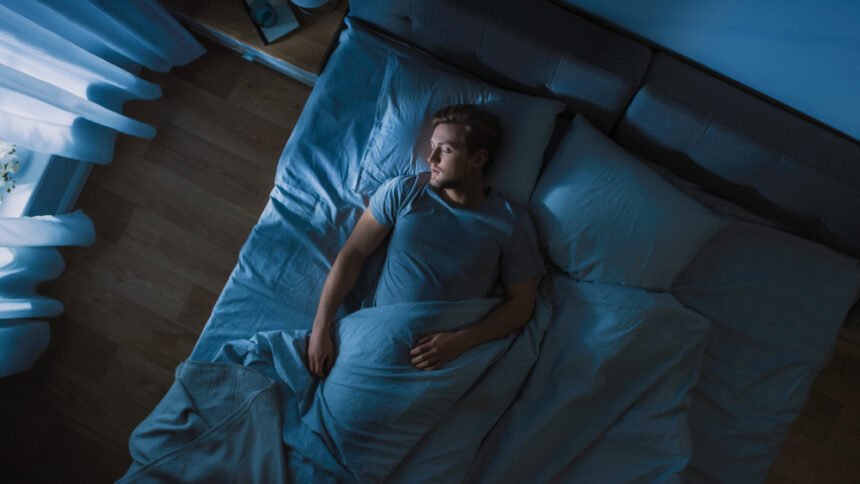Sleepwalking looks like something we only see in horror movies or comedies, but it is a very real problem. More than eight million Americans are prone to sleepwalking, and some of them experience two episodes of nighttime ambulation per month.
During episodes, sleepwalkers usually find themselves waking somewhere outside their bed and not being sure how they ended up there. Some people can even end up outside of their house, and in rare cases, some sleepwalkers can get in their car and drive away. Other than getting you into awkward situations, sleepwalking can affect your overall quality of life. So, let’s talk about the consequences this condition can have and how you can handle it.
The impact of sleepwalking on your life
Sleepwalking, a parasomnia that involves a series of complex behaviors that happen during arousals from non-rapid eye movement (NREM) phase, is a potentially serious condition that can affect both physical and mental health. A 2013 study found a high frequency of depression, fatigue, daytime sleepiness, and anxiety in persons who sleepwalk compared to those who don’t. Study results show that more than half of sleepwalkers have violent episodes, including causing injuries to their bed partners.
Also, they’re at serious risk of injury during episodes, considering they’re unaware of what they’re doing or where they are.
All of this can be stressful. Knowing that you can wander off in your sleep or become violent or hurt yourself can discourage you from traveling and even starting a relationship. Furthermore, doing things in your sleep can affect the very quality of your sleep and make you tired and dysfunctional the next day.
Symptoms, causes, and diagnosis of nighttime ambulation
Sleepwalkers sometimes go back to their bed as if nothing happened at all. So, if you suspect you might be walking in your sleep, pay attention to the following symptoms:
- You feel disoriented or confused right after you wake up.
- You have problems functioning during the day.
- You have sleep terrors.
- Your partners or someone from your household tells you that you did or said something you don’t remember during the night.
Scientists are still not clear about what causes nighttime ambulation, but some of the potential triggers for sleepwalking could be mental disorders, poor lifestyle habits, genetics, medical conditions, stress, restless leg syndrome, sleep routine disruption, and medication.
It is always recommended to talk to your doctor if you suspect you’re a nighttime walker. The doctor will review your symptoms and medical history. A physical exam will help determine if you have another condition that you’ve confused with sleepwalking. It would be a good thing to take your partner or a household member to the appointment with you because they can shed some light on your sleep behavior.
If all of this is not enough, you can subject yourself to a nocturnal sleep study. This means staying overnight in a sleep lab so that the experts can monitor the oxygen levels in your blood, the brain waves, breathing, and heart rate.
Living with sleepwalking and treating the condition
Medical treatment is not always necessary for sleepwalkers. Usually, it’s enough to adapt to your condition by making certain lifestyle changes, such as:
- Establish a relaxing bedtime routine which includes calming activities such as taking a warm bath or reading a book.
- Identify the stress triggers and try to handle them properly (see a psychologist, do yoga, meditate…).
- Avoid alcohol, caffeine, cigarettes, and processed foods. Instead, maintain a balanced diet and stay hydrated.
- Do not deprive yourself of sleep. Make sure you get at least seven hours of shut-eye per night.
- Even if you follow all these tips, there is still a chance that you will have occasional episodes. That’s why it is imperative to create a safe environment to avoid injuries and accidents. Make sure your home is locked and the windows are secured so you don’t get outside. Sleep in a ground-floor bedroom. Keep all sharp and dangerous items out of your reach.
Sometimes, professional treatment is necessary. Here are your options:
- treating a medical condition that causes sleepwalking
- getting prescribed medication, such as antidepressants or benzodiazepines
- seeing mental health or sleep professionals
- Self-hypnosis is advised as one of the potential ways of handling sleepwalking. Of course, this requires learning from a trained professional and not from a YouTube tutorial.
Final word
Sleepwalking can be a serious problem, but it is not taken as seriously as it should be. There is still no medical consensus on causes and treatment of this condition, and people whose lives are affected by it need to find effective ways of coping. This article provided basic information, but make sure to consult a professional to get a diagnosis and treatment recommendations.









